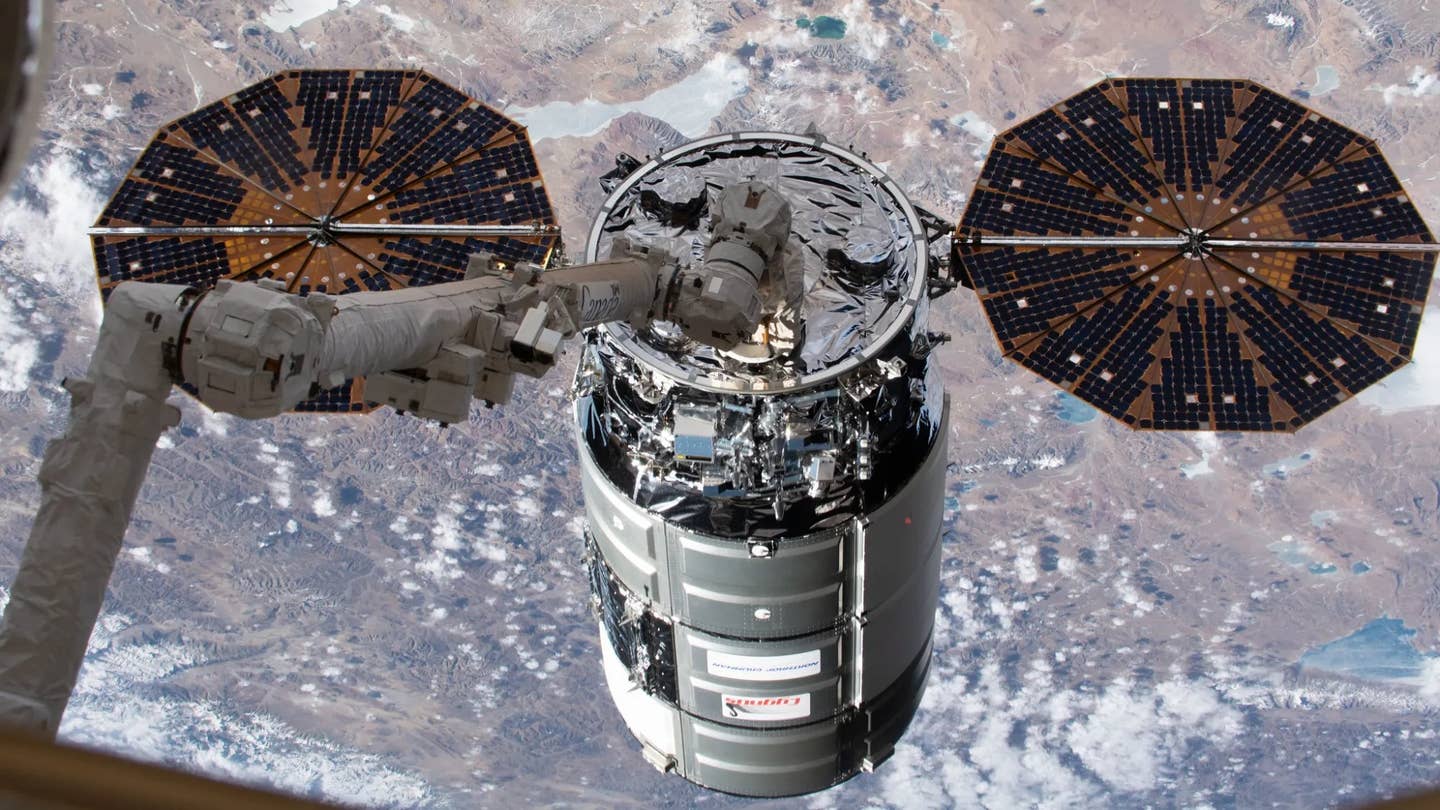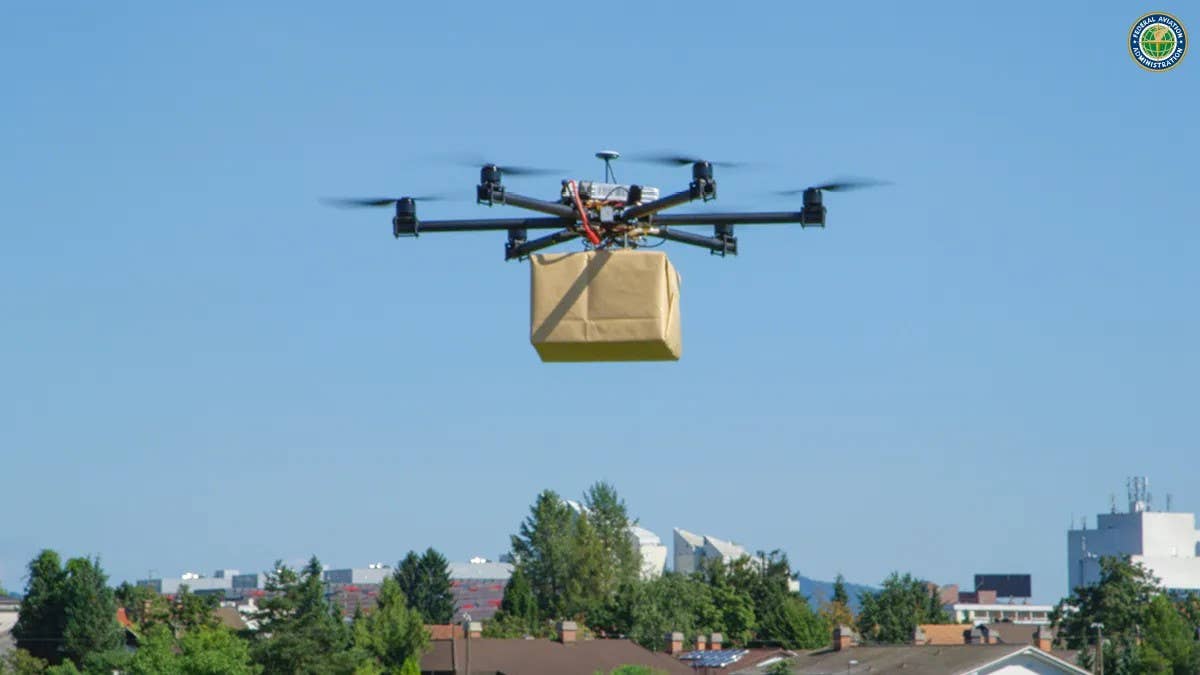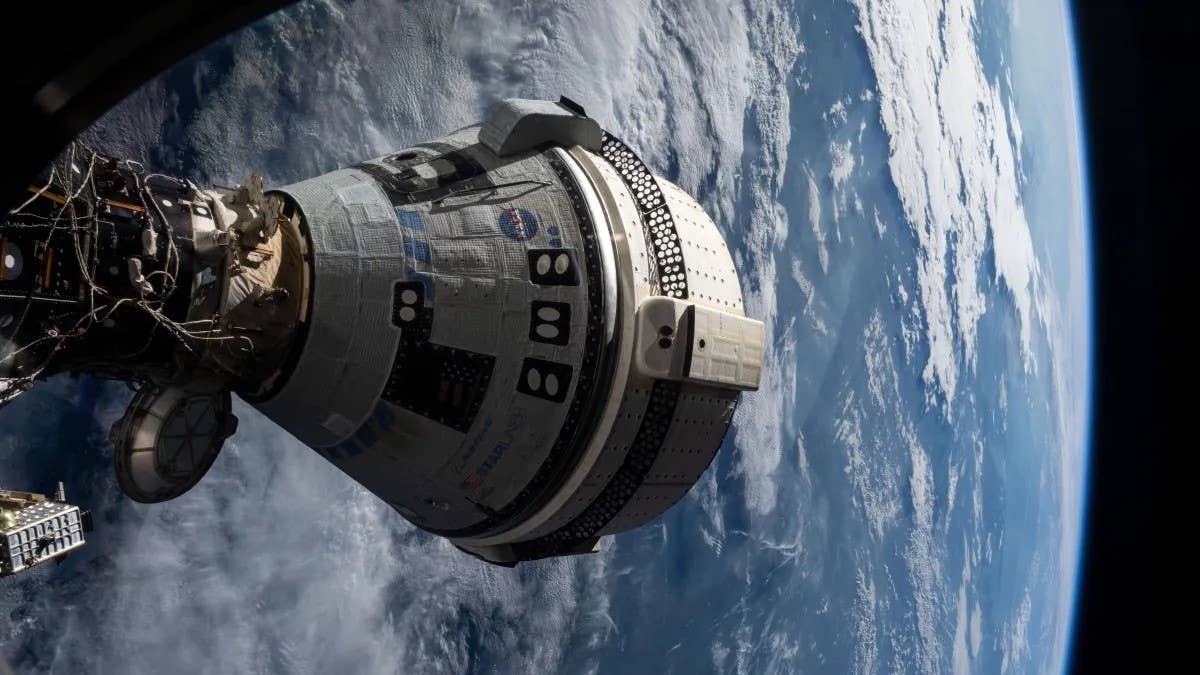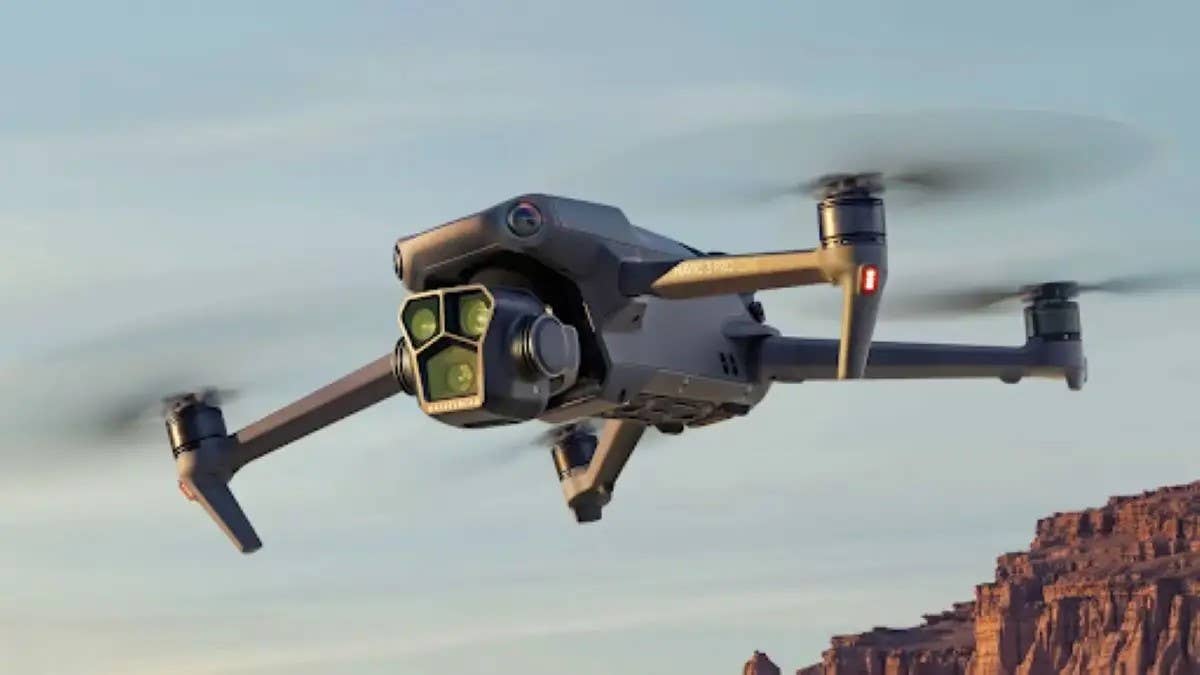Rocket Lab Signs $515 Million Satellite Contract with Mystery Government Agency
The launch and space systems provider is thought to be working with the Space Development Agency, part of the U.S. Space Force.
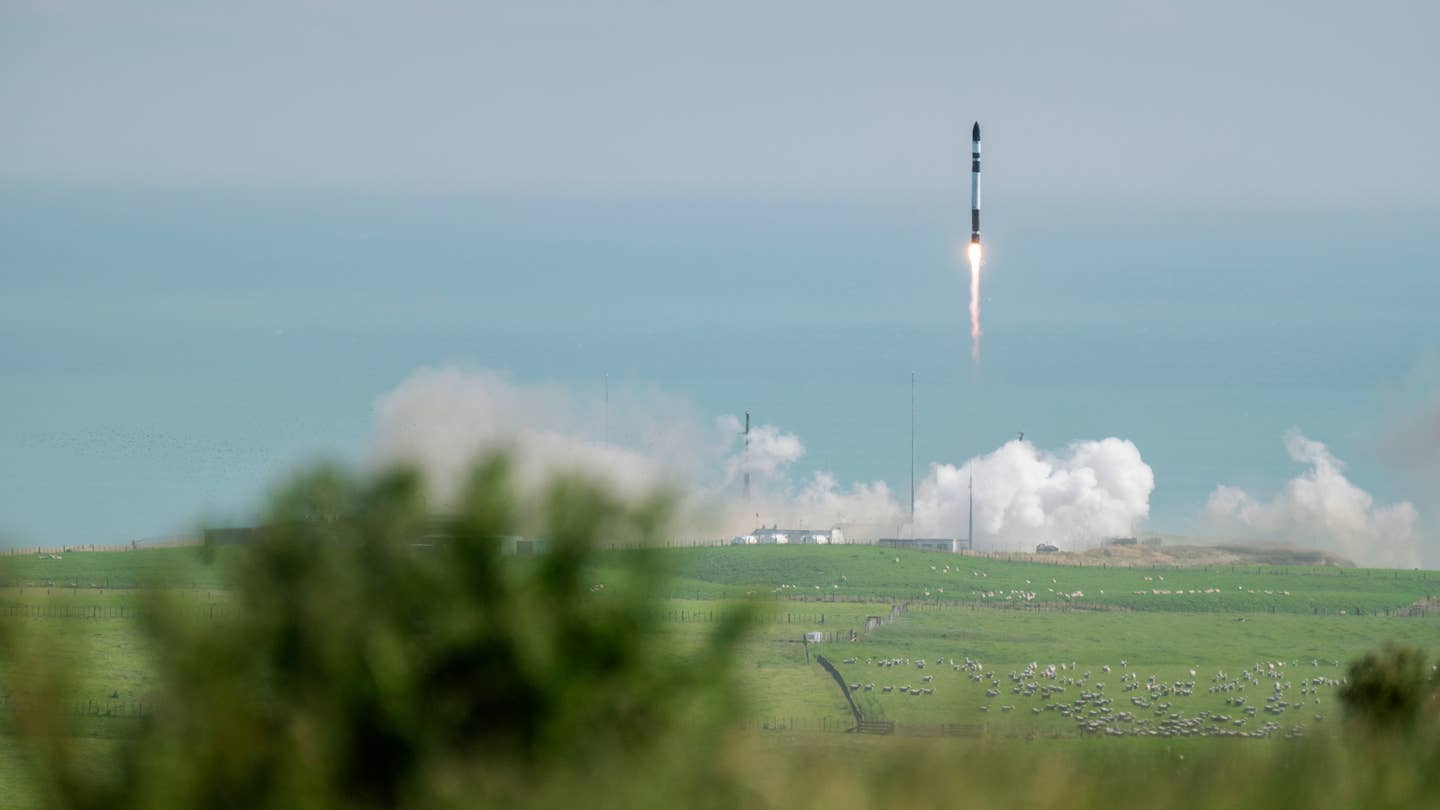
Rocket Lab’s Electron rocket leaves the company’s launch pad in New Zealand on a December 15 mission, dubbed “The Moon God Awakens,” for a Japanese customer. [Courtesy: Rocket Lab]
One of the most prolific rocket launch providers in the world secured what may be its largest contract ever.
Long Beach, California-based Rocket Lab last month submitted an SEC filing detailing the agreement: a deal to design, manufacture, deliver, and operate 18 “space vehicles” worth up to $515 million. For whom, though, is a mystery—the firm did not detail the specific customer, the purpose of the deployments, or the technology being delivered. But there are a few clues.
Rocket Lab’s SEC filing, dated December 21, 2023, said the company signed an agreement with a “United States government customer” to produce the 18 vehicles. Launches under the contract are expected to begin in 2027, shortly after the first customer delivery.
The deal calls for Rocket Lab to operate the vehicles through 2030, with an option to extend that to 2033. At minimum, the firm will rake in $489 million from the contract, with options and incentives for a further $26 million.
While it’s unclear which agency is purchasing the technology, signs point to the Space Development Agency (SDA), an organization within the U.S. Space Force.
SDA is buying up hundreds of low-cost, industry-procured satellites to deploy in low Earth orbit (LEO). These will create a satellite “constellation” capable of detecting mobile missile launchers, ships, and other threats in real time for U.S. military forces on the ground. The initiative is called the Proliferated Warfighting Space Architecture, or PWSA.
The project contains five tranches, or stages. One of these, Tranche 2, is projected to include 90 communications systems (called “Beta” satellites) comprising a Transport Layer, which will provide military connectivity on Earth beyond the line of sight. In August, SDA awarded a total of $1.5 billion to defense contractors Lockheed Martin and Northrop Grumman to build 72 satellites for that component, called Transport Layer Tranche 2 Beta.
That’s a lot of fancy terminology. But in short, SDA needs 18 more satellites to fill out the roster. Does that number sound familiar? Derek Tournear, director of the SDA, last month acknowledged the figure and hinted that the organization is closing in on a purchase.
“We are looking at putting another 18 [Beta] satellites on contract, and we are looking at a third vendor to do that,” Tournear said at a National Security Space Association event on December 7. “We should make that announcement shortly.”
Tournear’s comments are not confirmation that SDA is Rocket Lab’s mystery customer. But the launch provider certainly fits the bill of that “third vendor,” and a collaboration between the two may make a lot of sense.
A Good Fit?
Rocket Lab got its start solely as a launch provider but has since expanded with a Space Systems business, which produces satellite components such as radios and solar panels. In fact, that unit actually outperformed the company’s launch business in the third quarter, leading all segments with $46.3 million in revenue.
Given the shift in business focus, a partnership with SDA makes sense.
The organization introduced the PWSA initiative in 2019, launching the first two batches of Tranche 0 satellites this year. A third and final wave is expected to join them soon. Meanwhile, the agency has poured billions into Tranche 1 contracts for Lockheed, Northrop, and York Space Systems, with the first Tranche 1 satellites slated for launch in September. As of October, it was in the source selection phase for another batch of Tranche 2 vehicles.
Tranche 2 Beta satellites will deploy ultra-high frequency and S-band radio frequencies, which are used by the military for voice and data transmission. In November, SDA successfully demonstrated communications between satellites and earthbound receivers through the vacuum of space, using the Tranche 0 spacecraft deployed earlier this year.
Like SDA, the U.S. Space Systems Command is also developing LEO satellite constellations, part of a push by the Space Force to acquire small satellites for applications such as missile warnings. In other words, there’s plenty of demand for what Rocket Lab is supplying.
In addition, Rocket Lab and SDA have a prior relationship. In 2022, the company formed a national security subsidiary to hone in on the U.S. defense and intelligence market. That year, it won two SDA contracts worth $14 million to build separation systems for 84 SDA satellites, built by Lockheed and a second undisclosed supplier.
Rocket Lab on the Rebound
Like Elon Musk’s SpaceX and Jeff Bezos’ Blue Origin, Rocket Lab this year felt the wrath of the FAA after a September mishap. But with a massive contract now in hand, the company may be headed for a rebound.
The accident earlier this year, which destroyed a payload aboard the firm’s Electron rocket, may have something to do with the launch segment’s recent struggles compared to the Space Systems business. But with FAA authorization to resume flying and a return to action in December, the company’s flagship rocket is back—and, in fact, it had a record year.
Electron flew 10 times in 2023, besting the company’s record of nine flights the year before. That’s at the top of the list for any launch provider not named SpaceX—rival United Launch Alliance, for example, flew just three times. The two-stage rocket also made its first mission on U.S. soil and flew twice in the span of one week, setting a new high mark for turnaround time.
While Rocket Lab specializes in Electron missions out of spaceports in Virginia and New Zealand, the company also earned seven suborbital launch contracts this year: five from Leidos, one from the Department of Defense, and another from a confidential customer.
In addition to Electron, Rocket Lab since 2019 has produced the Photon, a satellite bus that uses chemical propulsion to fly in LEO, mid Earth, geostationary, or lunar orbit, and even on planetary journeys. First launched in 2020, Photon can be configured for an array of uses from satellite constellations to hosted payloads, such as NASA’s 2022 Cislunar Autonomous Positioning System Technology Operations and Navigation Experiment (Capstone) mission. There are four in orbit.
The company is further developing the larger Neutron rocket, expected to debut in 2025. Earlier this year, it purchased $16.1 million in assets from the now-defunct Virgin Orbit, including a lease to one of the Richard Branson-owned company’s Long Beach facilities and key manufacturing infrastructure.
In October, Rocket Lab opened an engine development center to produce the spacecraft’s new Archimedes engine. A few years ago, it also won a $24.35 million Space Force award to develop Neutron’s upper stage.
With all of that recent activity plus December’s massive contract, Rocket Lab will be hoping it can cling to the number two ranking among launch providers for the foreseeable future.
Like this story? We think you'll also like the Future of FLYING newsletter sent every Thursday afternoon. Sign up now.

Subscribe to Our Newsletter
Get the latest FLYING stories delivered directly to your inbox

